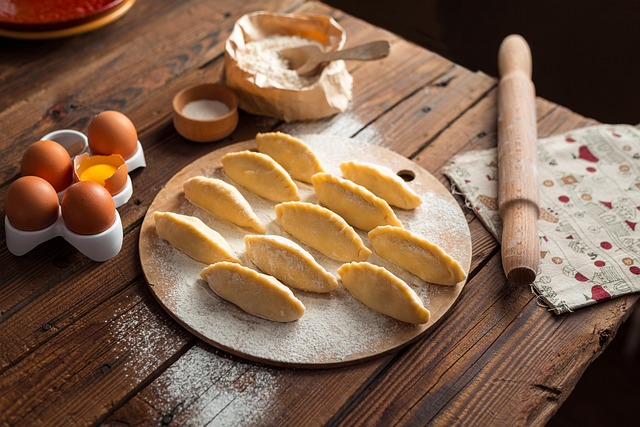Homeowners are prioritizing kitchen remodel for energy efficiency by adopting eco-friendly kitchen upgrades, especially induction cooktops. These appliances directly heat cookware, minimizing heat loss and achieving significant energy savings compared to traditional methods. By combining induction cooktops with low-energy lighting for kitchens, homeowners can enjoy quick cooking times, precise temperature control, and contribute to a sustainable future. This trend in energy-efficient kitchen design offers both environmental benefits and modern aesthetics, making it an ideal solution for green kitchen remodeling.
Choosing an induction cooktop is a smart move for faster, energy-efficient cooking and a greener kitchen. This article explores why these modern appliances are gaining popularity in the pursuit of a more sustainable home. We delve into the benefits of induction cooking, its environmental advantages, and provide practical tips for integrating them into your kitchen remodel. Discover how an eco-friendly kitchen upgrade can save you money and reduce your carbon footprint with energy-saving kitchen appliances like induction cooktops.
Understanding Energy-Efficient Cooking: The Need for Induction Cooktops
In today’s world, where environmental consciousness is on the rise, many homeowners are turning their attention to creating more energy-efficient kitchen spaces through smart upgrades. A crucial aspect of this shift is adopting technology that reduces energy consumption without compromising performance. Induction cooktops emerge as a prominent solution in this context, offering both speed and energy savings for the modern kitchen.
The need for induction cooking arises from the desire to move away from traditional methods that often lead to energy wastage. Unlike electric coils or gas burners, induction technology directly heats cookware, minimizing heat loss and ensuring efficient energy utilization. This eco-friendly approach aligns perfectly with the concepts of green kitchen remodeling and sustainable living, making it an appealing choice for those looking to integrate environmental friendliness into their kitchen remodel for energy efficiency. With induction cooktops, homeowners can benefit from quick cooking times and precise temperature control while contributing to a more sustainable future through reduced energy consumption.
Benefits of Induction Cooking: Faster and More Efficient than Traditional Methods
Induction cooking has emerged as a game-changer in modern kitchen design, offering a host of benefits that cater to today’s eco-conscious and time-strapped cooks. One of its most significant advantages is speed. Induction cooktops heat pots and pans directly through electromagnetic induction, eliminating the energy losses associated with traditional heating methods. This means your food cooks faster, reducing wait times and ensuring efficient use of your time in the kitchen.
Moreover, induction cooking is renowned for its energy efficiency. Unlike gas stoves that produce heat through burning fuel, induction cooktops generate minimal waste heat. This not only translates to lower energy consumption but also contributes to a greener kitchen environment. When considering a kitchen remodel focused on sustainability and energy savings, opting for induction appliances can be a powerful step towards a more eco-friendly home.
Eco-Friendly Features: How Induction Cooktops Reduce Your Carbon Footprint
Induction cooktops represent a significant step forward in eco-friendly kitchen upgrades. Unlike traditional gas or electric stoves, they offer exceptional energy efficiency, significantly reducing your carbon footprint. This is primarily due to their direct heat transfer mechanism; induction technology generates heat directly within the cookware, minimizing energy waste. In an era where sustainable kitchen renovation is gaining traction, these cooktops are a game-changer for those looking to incorporate green kitchen remodeling into their plans.
When considering a kitchen remodel for energy efficiency, opting for induction cooktops goes beyond saving on utility bills; it contributes to global sustainability efforts. By choosing energy-saving kitchen appliances like induction stoves and pairing them with low-energy lighting for kitchens, you’re making a significant impact. This shift towards energy-efficient kitchen design not only promises a greener future but also sets the stage for a more sustainable lifestyle, starting right in your home.
Integrating Induction into Your Kitchen Remodel: Design and Installation Tips
When planning a kitchen remodel focused on energy efficiency, integrating induction cooktops is a smart choice. Induction technology offers swift cooking times and remarkable energy savings, making it an eco-friendly upgrade that benefits both your wallet and the environment. To seamlessly incorporate induction into your sustainable kitchen renovation, consider sleek, modern designs that complement your overall aesthetic. Opt for models with precise temperature controls and customizable zones to suit various cooking tasks.
During installation, ensure proper wiring and grounding to support the high-power requirements of induction cooktops. Professional installers can help achieve a safe, efficient setup by strategically placing the appliances within easy reach and aligning them with your kitchen layout. Pair these cooktops with low-energy lighting for kitchens, such as LED fixtures, to maximize energy-efficient design without compromising on style or functionality.
Energy Savings in Action: Real-World Examples and Cost-Benefit Analysis
Choosing induction cooktops is a strategic move toward a kitchen remodel for energy efficiency. These modern appliances offer significant energy savings compared to traditional methods, making them an attractive option for eco-friendly kitchen upgrades. In real-world scenarios, studies show that induction cooking can reduce energy consumption by up to 30% in comparison with gas stoves and electric coils. This is achieved through direct heat transfer to the cookware, eliminating energy wastage into the surrounding air.
When considering a sustainable kitchen renovation, the cost-benefit analysis of induction cooktops is compelling. While initial installation costs might be higher, long-term savings on utility bills can offset this investment. Moreover, the longevity of induction cooktops, often exceeding 20 years with proper care, ensures that your green kitchen remodeling project remains environmentally beneficial and economically sound. Additionally, low-energy lighting for kitchens combined with energy-saving kitchen appliances like induction cooktops creates a well-lit, efficient workspace while promoting a greener lifestyle.
Choosing induction cooktops is a smart move towards a more energy-efficient and sustainable kitchen. With their faster cooking times, reduced energy consumption, and minimal environmental impact, these modern appliances offer an ideal solution for those seeking to integrate eco-friendly features into their kitchen remodel. By embracing induction technology, you’re not only enhancing your culinary experience but also contributing to a greener planet through smaller carbon footprints.
